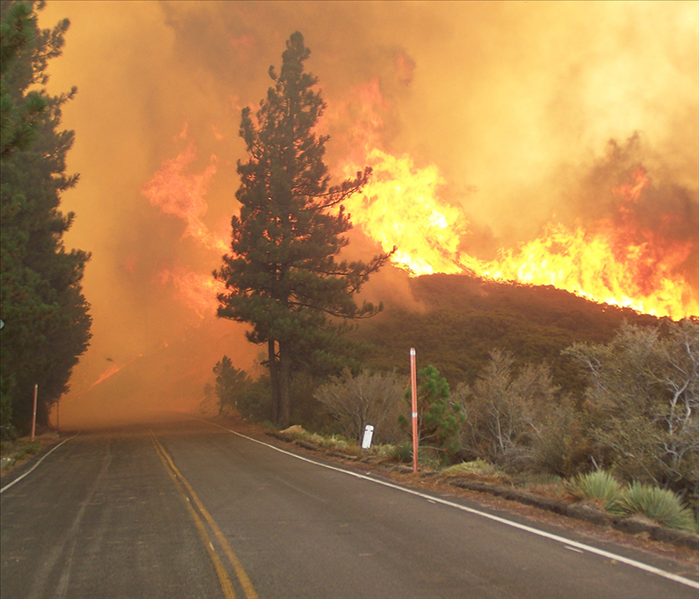How to Prepare for Wildfires
12/1/2022 (Permalink)
How to Be Prepared for Wildfires
Wildfires can be terrifying, but they're also natural parts of the ecosystem. And while they might not seem likely to happen, knowing how to be prepared for wildfires is important no matter where you live. If this is your first time dealing with wildland fires, take some time now to plan for the worst-case scenario if it does happen.
Know the signs and symptoms of wildfires.
If you smell smoke in the air, it could mean that a wildfire is nearby. You may also see ash falling from the sky or observe dry air and low humidity, as well as clear skies with strong winds and gusts. The smell of smoke should be your first sign that something is on fire nearby; if you don't smell anything but do notice other signs like those above, then it's likely that there is a wildfire nearby.
Have a plan for where to go if a wildfire approaches.
Planning ahead is key to reduce risk of injury or death. If you are at home, follow these tips:
- Have a plan for where to go if a wildfire approaches.
- Be ready to act quickly and leave if told to do so by local authorities.
- Be aware that there may be several ways out of your neighborhood, but not all roads are safe for travel during evacuations.
Providing enough water reduces risk of dehydration.
This is a crucial step. You can't live without water and having enough of it for each person in your household makes it less likely that anyone will suffer from dehydration. FEMA recommends one gallon of water per person per day, but the general rule is to always have at least one gallon per person per day on hand.
If you have tap water, boil it for at least 1 minute before drinking or use bottled water (but make sure to check expiration dates). Another option is to buy purifiers or filters that remove contaminants like bacteria and viruses from contaminated sources such as lakes or rivers.
You should gather the necessary supplies ahead of time, especially in dry weather. It is important to have enough food, water and medication for your family.
Plan for the worst and be prepared for it.
It is important to know what to do in the event of a wildfire as well as know your community's emergency plan and know how to respond in case of an emergency. Identify possible evacuation routes ahead of time so that if there is an evacuation order issued by local authorities.
Have a supply kit ready to go with enough food, water and other supplies for at least 72 hours. Pack items that are lightweight and portable such as cans of tuna or spam, dry cereal, peanut butter and crackers. Be sure the kit has any medications you use regularly. Include things like flashlights with extra batteries and wind-up radios so that you can get information on where it's safe to go if wildfires threaten your area. Also include important documents like proof of identity cards or birth certificates in case there is an evacuation order issued by local authorities.
With the right planning, preparation, and resources, wildfires can be survivable. But it’s important not to get complacent when it comes to wildfires. The key is being proactive about keeping your family safe from these natural disasters. By knowing what to do in case of a wildfire, as well as how they start and spread, you’ll be prepared if one ever strikes close by.





 24/7 Emergency Service
24/7 Emergency Service
